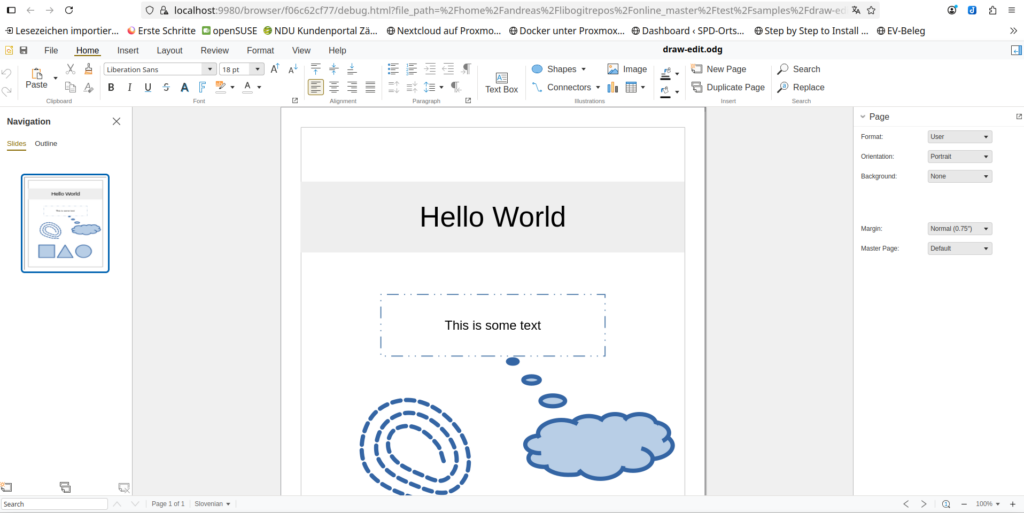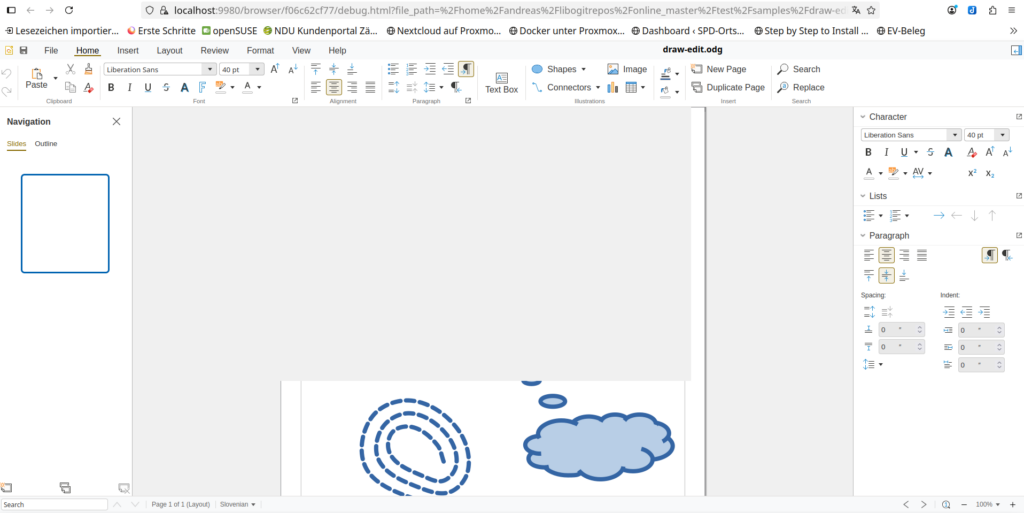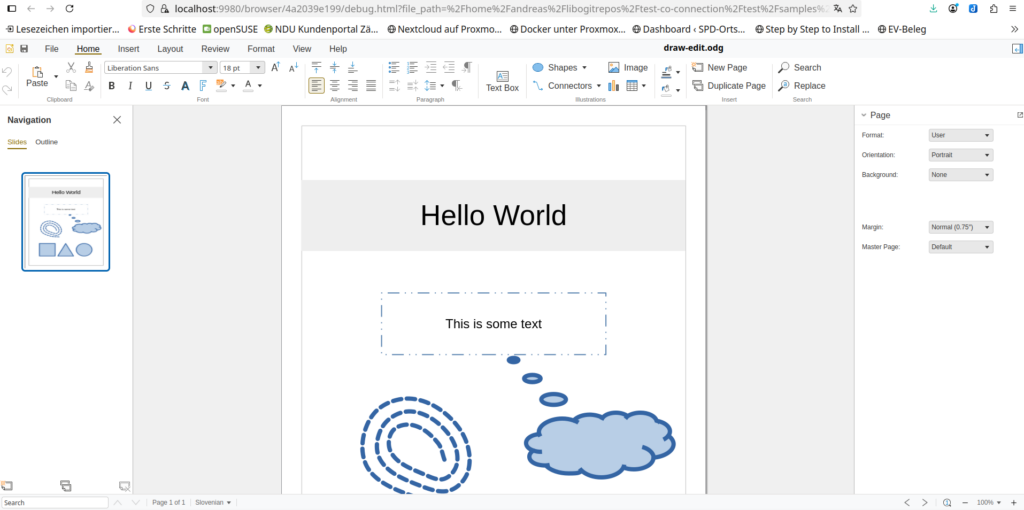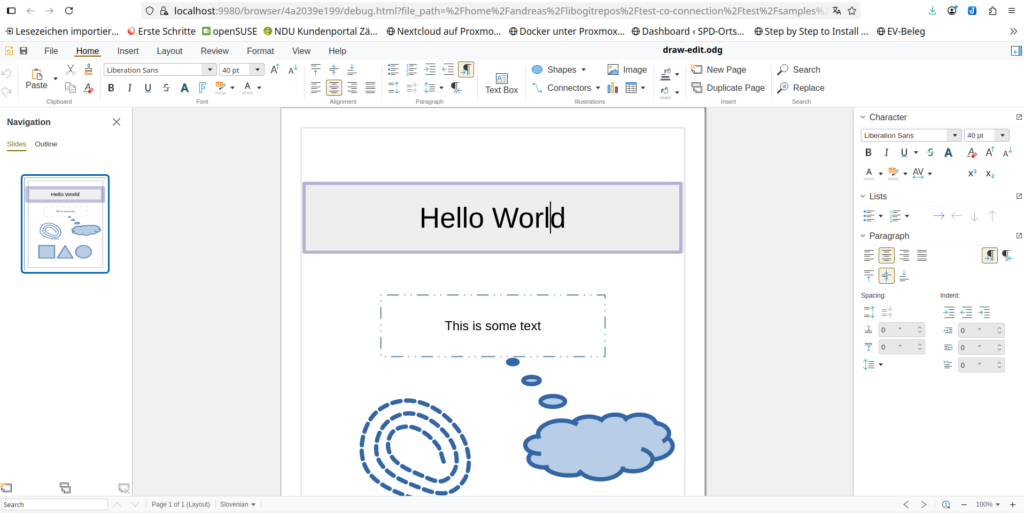I got some issues with running the Draw Module of the LibreOffice Online / Free Online Office. I run my Free Online Office version (master) using the latest master version of the LibreOffice core (build on the same machine by myself). I can start Draw with an odg-document. This odg-document contains besides graphics also text boxes. Once I load the example document in online it shows the boxes with the text inside (see screenshot below).

But once I clicked into the text box to edit the text, the textbox disappeared and I got a big grey area instead (see screenshot below).

I first thought this might be an issue with the code of my Free Online Office code. But that wasn’t the case. I made an experiment. I run my online version using the LibreOffice core branch for Collabora 25.04 and opened the same example odg-document with it. The document loaded and I could view it’s content (see screenshot below).

Then I clicked into the text box to edit the text and it happens that I could do this without any issues (see screenshot below).

Thus there is no issue in my Free Online Office but in the core module of LibreOffice. There are commits / patches inside the Collabora 25.04 branch of core which didn’t made it’s master. Thus you can’t create a fully working online office using the LibreOffice core master. You have to use its fork from the branch Collabora 25.04.
This shows that the eco system companies didn’t submit all their code changes to the upstream project, in this case the LibreOffice core master branch. This is contrary to their promise that they fully support the LibreOffice project. If that would be the case they would contribute / commit their patches to the LibreOffice core master first and then adapt them to their product releases.
They have no issue to use the resources of the LibreOffice project (funded by donations) for their development work, patch review, localization, marketing etc. but apart from that cook their own soup. It’s also disturbing that they use for their developer marketing the public resources of another Open Source project (Jitsi) (funded by donations) instead of running their own videoconference server.

